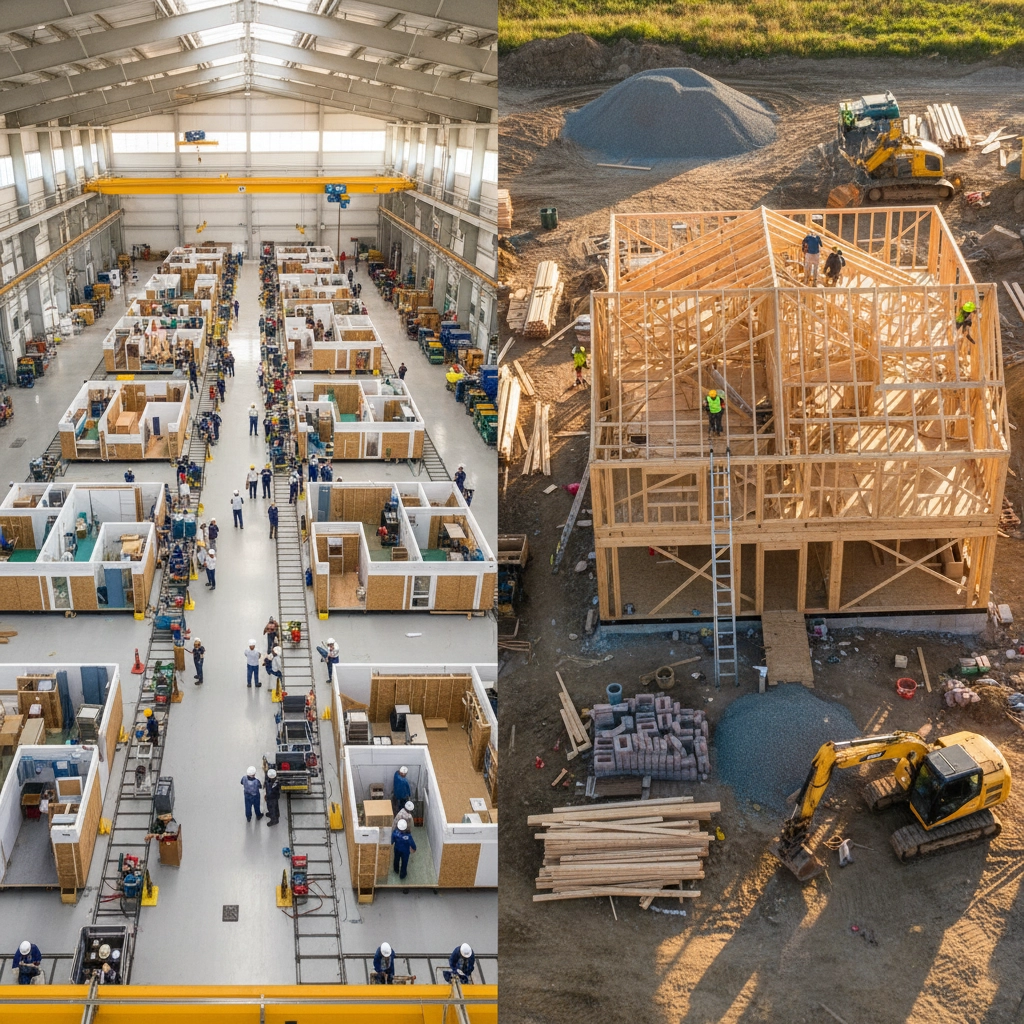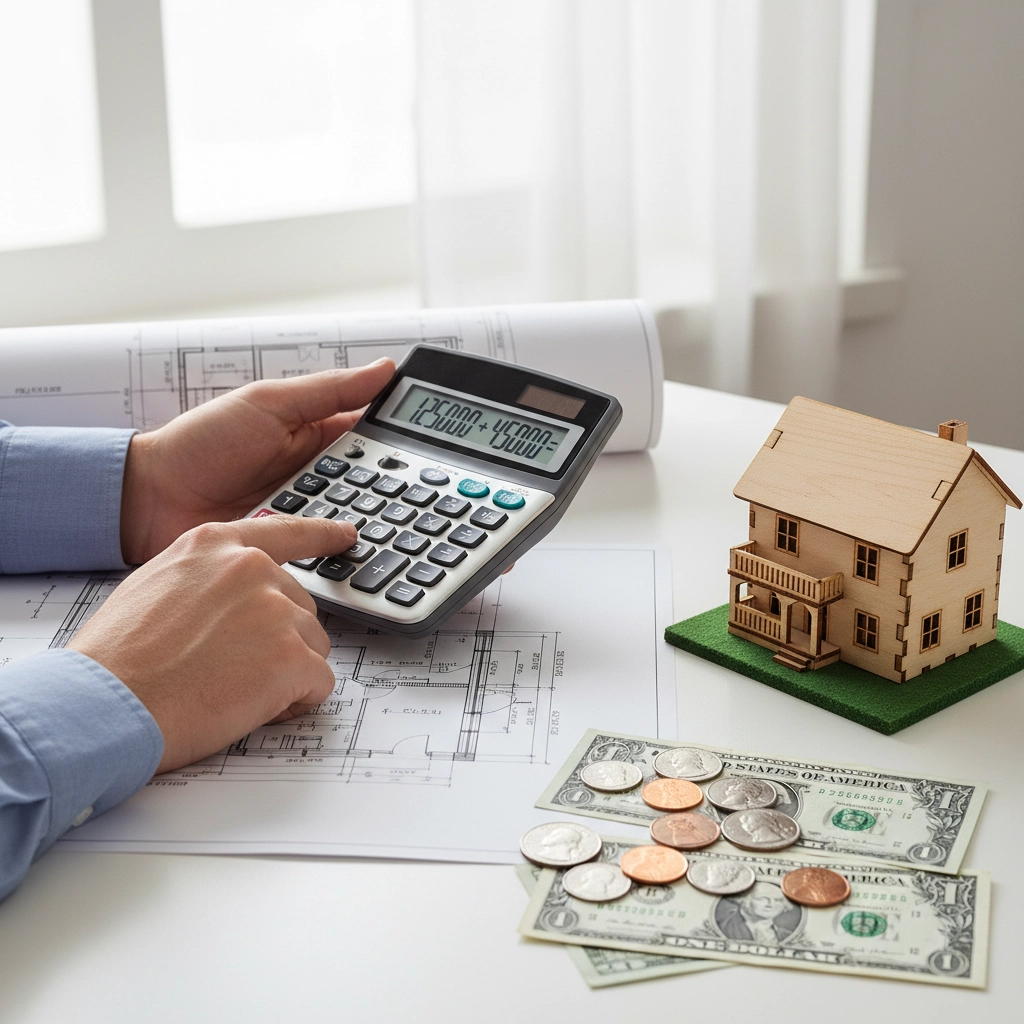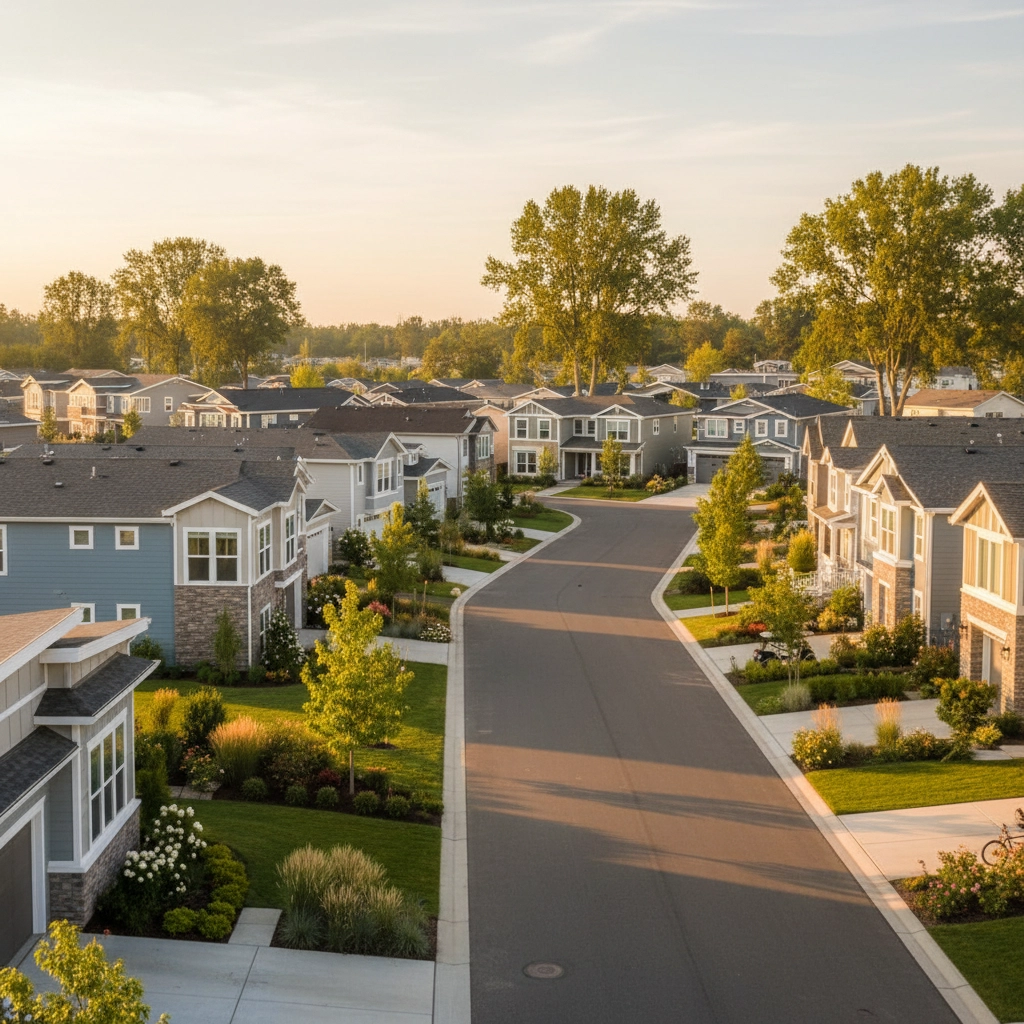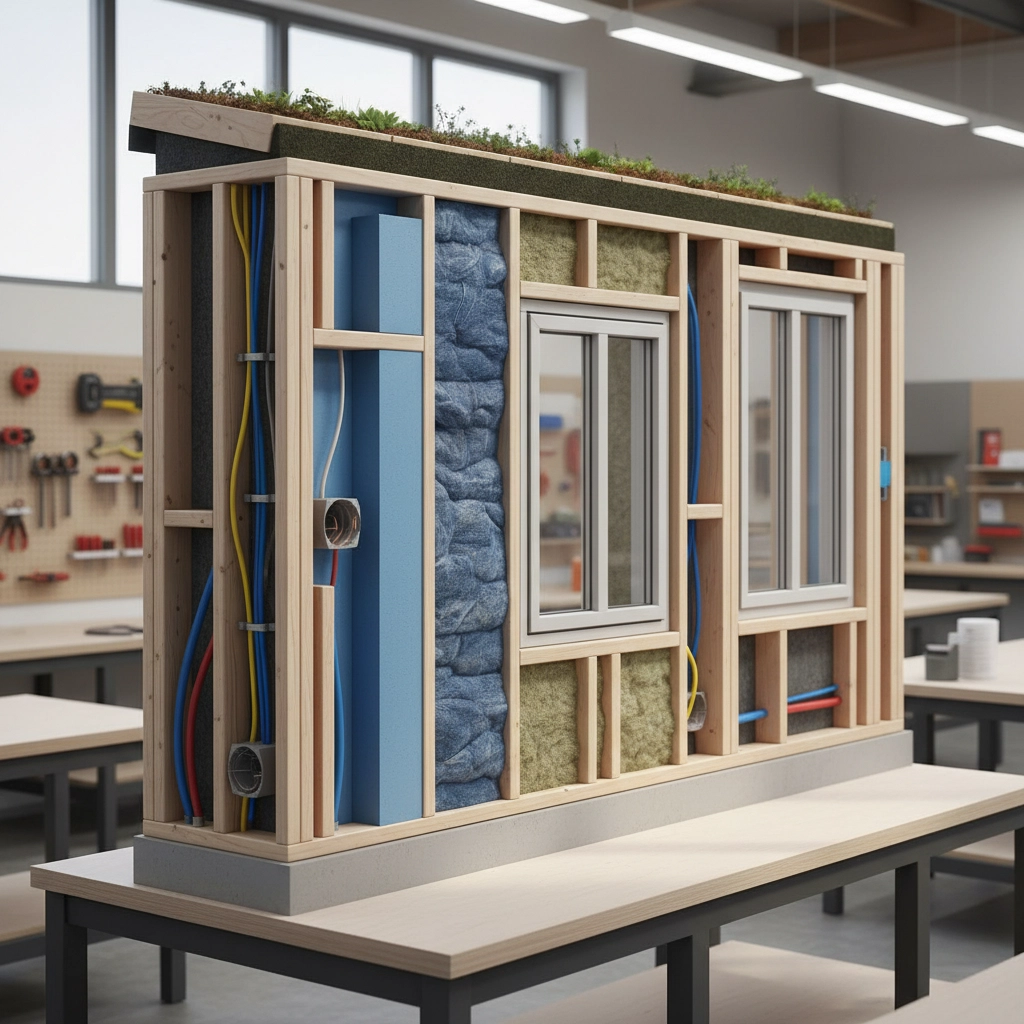When you're shopping for a new home, you'll quickly discover there are two main types of construction: manufactured and site-built homes. While both can provide comfortable, quality living spaces, they're built very differently – and those differences can significantly impact your budget, timeline, and long-term investment.
Let's break down the real differences between these two options so you can make the best choice for your situation.
Where and How They're Built Makes All the Difference
The most fundamental difference between manufactured and site-built homes is literally where they come to life.
Manufactured homes are built entirely indoors in climate-controlled factories. Think of it like an assembly line process – skilled workers construct your home in sections, protected from rain, snow, and extreme temperatures. Once completed, these sections are transported to your chosen location and assembled on-site. This whole process follows federal HUD (Housing and Urban Development) standards rather than local building codes.
Site-built homes, on the other hand, are constructed piece by piece right where they'll sit permanently. Every nail, board, and fixture is brought to your lot, and the entire home is built according to local building codes and regulations. This means the construction process is completely exposed to weather conditions and seasonal delays.

The Cost Factor: Your Budget Will Thank You
Here's where manufactured homes really shine – they're significantly more affordable. We're talking about roughly half the cost per square foot compared to site-built homes.
Why such a big difference? Manufacturers buy materials in massive bulk quantities, which drives down costs considerably. Plus, that controlled factory environment eliminates weather delays that can balloon construction budgets. According to recent Census Bureau data, the average new manufactured home costs around $125,200.
Site-built homes carry higher price tags because materials are purchased for individual projects, on-site labor is more expensive, and weather delays can stretch both timelines and budgets. When your construction crew can't work because of rain or snow, those costs add up quickly.
Speed vs. Customization: Pick Your Priority
If you need to move in quickly, manufactured homes are the clear winner. Since factory production runs continuously regardless of weather, your home can be built and installed within just a few weeks. This makes manufactured homes perfect for anyone facing time pressure or needing housing fast.
Site-built homes require several months to complete – and that's assuming everything goes smoothly. Weather delays, permit approvals, inspections, and unexpected issues can easily extend your timeline.
But here's the trade-off: site-built homes offer unlimited customization. Want vaulted ceilings in the master bedroom? No problem. Dreaming of a wraparound porch? You got it. Every detail can be tailored to your exact preferences and your land's specific characteristics.
Manufactured homes work from pre-designed templates with limited customization options. While you can often choose from different floor plans, colors, and some fixtures, you're working within predetermined parameters.

Where You Can Live: Location Restrictions Matter
This is a crucial consideration that catches many first-time buyers off guard. Site-built homes can be constructed virtually anywhere there's residential zoning – established neighborhoods, new subdivisions, rural properties, you name it.
Manufactured homes face more restrictions due to local zoning laws. Some areas don't permit manufactured homes at all, while others limit them to specific communities or zones. Before falling in love with a particular manufactured home, make sure you can legally place it where you want to live.
The good news? Many areas are becoming more welcoming to modern manufactured homes as they recognize their role in addressing housing affordability challenges.
Built to Last: Understanding Quality and Durability
Both types of homes can be built to high quality standards, but they achieve this differently.
Site-built homes have the advantage of being constructed specifically for local conditions. If you live in an area prone to hurricanes, earthquakes, or extreme weather, your site-built home can be designed and constructed with materials and techniques that address these specific challenges.
Manufactured homes are built to meet federal HUD standards, which provide consistent safety and quality baselines across the country. Modern manufactured homes are increasingly durable and designed to withstand various weather conditions. In fact, the controlled factory environment often provides more consistent quality control than outdoor construction sites where weather and other variables can affect workmanship.

The Money Side: Investment Potential and Financing
Here's where the long-term financial picture gets interesting – and where you need to think carefully about your goals.
Site-built homes typically appreciate in value over time, similar to traditional real estate investments. This makes them attractive if you're looking to build equity and potentially sell for a profit down the road. Buyers generally prefer site-built homes, which can mean easier resales and stronger market values.
Manufactured homes have historically depreciated like vehicles, but this isn't always the case anymore. If you own the land your manufactured home sits on and maintain it well, it can potentially increase in value depending on local market conditions. However, manufactured homes still face some stigma in the resale market.
For financing, site-built homes typically qualify for traditional mortgages with competitive rates. Manufactured homes have more financing options today than ever before, including FHA loans, VA loans (for qualified veterans), and conventional mortgages – especially if the home is permanently attached to land you own.
Making the Right Choice for Your Situation
So which type of home is right for you? It really depends on your specific circumstances and priorities.
Consider a manufactured home if:
- You're working with a tight budget and need to maximize your housing dollar
- You need to move in quickly due to job relocation, life changes, or housing emergencies
- You're comfortable with some limitations on customization and location options
- You're looking for quality construction at an accessible price point
Consider a site-built home if:
- You view your home as a long-term investment and want to build equity
- You have specific design requirements or want maximum customization
- You plan to stay in the home for many years
- You have the budget and patience for a longer construction timeline

The Bottom Line
The "best" choice isn't universal – it's personal. Manufactured homes have evolved significantly from their early days and now offer quality, energy-efficient housing at prices that make homeownership accessible to more families. They're particularly valuable in areas where affordable housing is scarce or for buyers who prioritize quick timelines and budget-friendly options.
Site-built homes remain the traditional choice for those who want maximum flexibility, customization options, and potential for long-term appreciation.
The most important thing is understanding these differences upfront so you can make an informed decision that aligns with your budget, timeline, and long-term goals. Both options can provide comfortable, quality homes – they just get there in different ways.
Whether you choose manufactured or site-built, the key is working with reputable builders or communities that prioritize quality construction and customer satisfaction. Take time to research your options, visit model homes, and ask plenty of questions before making your decision.
Your perfect home is out there – now you're better equipped to find it.
